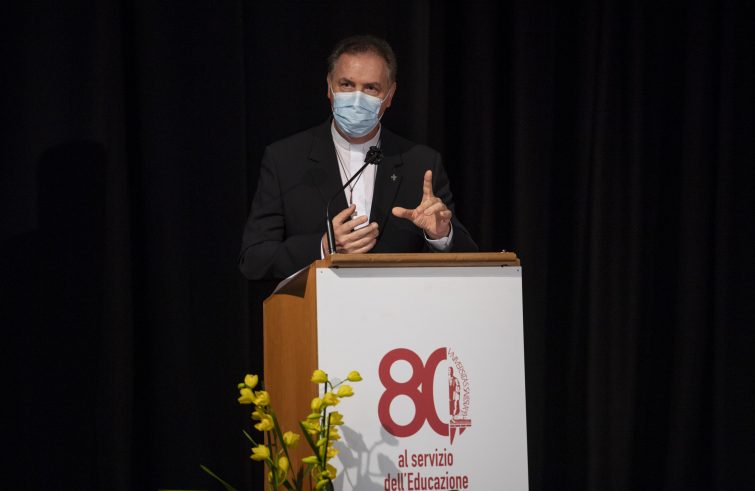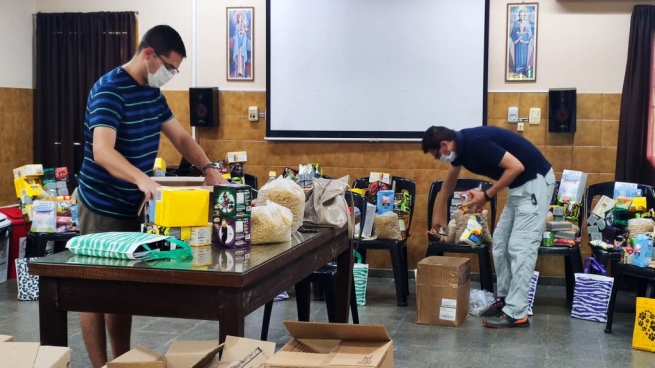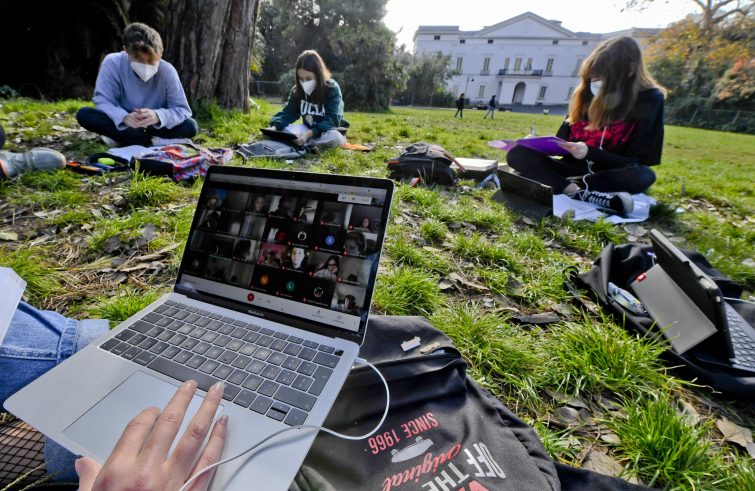
“Preventive measures were not taken. But who would have imagined a tragedy of such proportions? It should be remembered that world countries were forced to respond to an unprecedented disease. We gradually learned more about it and how to prevent it to a certain extent. Yet not all efforts were successful. World countries are now hit by a second wave of the virus, with severe impacts. Public health agencies will need to update their safety protocols, drawing on this lesson for future policies.” Father Ángel Fernández Artime, Rector Major of the Salesians of Don Bosco, described the commitment of over 14,000 confreres responding to the pandemic worldwide. He disclosed a tragic figure: more than 80 Salesians were killed by COVID-19.
The Salesians of Don Bosco are present in more than 130 countries. How is the mission being carried out in today’s challenging circumstances?
We went through some difficult months. In the 134 countries where we are present our efforts were tailored to the circumstances of each specific area and continent. Our first priority was to fulfil the Salesian motto to form “Honest citizens”, which was also the guiding principle embraced by Don Bosco in the education of the young. In other words,
We encouraged will all means children and young people to act responsibly and to adhere, as citizens, to the recommendations of civil and health authorities in each country.
To this end we offered young people involved in our activities in particular, some useful pedagogical-educational and learning guidelines. On many occasions, children prove to be more sensible than adults when they learn what is happening.

Weren’t you afraid to see other people in person?
We didn’t lock ourselves up inside our homes and with the help of young volunteers, we created support and solidarity groups. I believe I can safely say that this is what happened throughout the “Salesian world”.
As soon as the pandemic broke out we launched a global Salesian campaign to bring relief to those most affected. We managed to reach out to over 63 countries with financial aid offered by many generous and good-hearted people who support us every day, and often unbeknownst to us.
Regrettably, we know that the pandemic not only claimed victims, but also impoverished those lacking sufficient income. So we delivered food supplies and other necessities to the families of many of our students. In addition, our efforts were carried out in conjunction with the local Caritas, with NGOs and other agencies in many parts of the world. I also wish to highlight the heroic contribution of many of our youths who distributed aid to the homeless and to vulnerable persons, including impoverished families in many urban centres.
How many priests were killed by the virus?
We sadly lost at least eighty confreres. At first we thought that the pandemic only affected the elderly, but we soon realized that COVID-19 hits everyone. And I sadly believe that more will continue to die. One of the tragic aspects of the pandemic are the many families who lost their loved ones, countless children who suffered the loss of their parents without being able to bid them a last, dignified farewell; the many deceased brothers and sisters in our religious communities and many priests in dioceses. This is and has been our reality. We are trying to face it with faith and hope.

How was school teaching reorganized?
To be honest, many of our schools, especially high schools, were already equipped with technology for remote learning, and so it was somehow “simple” to shift from face-to-face courses to online teaching. The greatest challenge was how to involve poor children without a family and lacking remote learning technology. We thus responded by donating tablets and creating audiovisual learning materials. In many cases this was possible thanks to the help of families paying a tuition fee.
Unfortunately, officially recognized private schools cannot rely on families and administrators alone.
We run some 6,000 educational establishments of all types and at all levels, with extensive educational programs. We don’t understand why in Italy and in a few other Countries this educational effort lacks economic-financial support from the State. In fact it is provided in many other countries, which consider it a public service, although carried out by a private institution. We are well aware that in Italy this is a virtually never-ending issue and is subject to the influence of short-lived ideologies.











